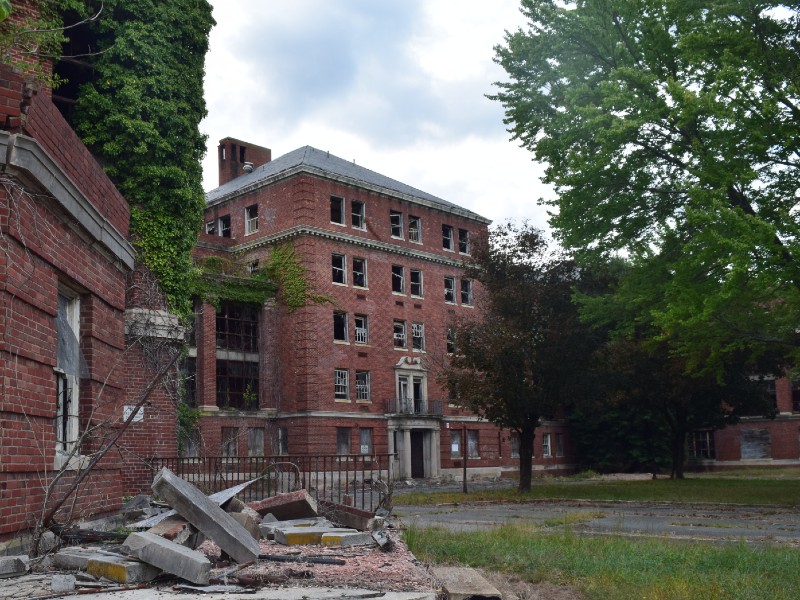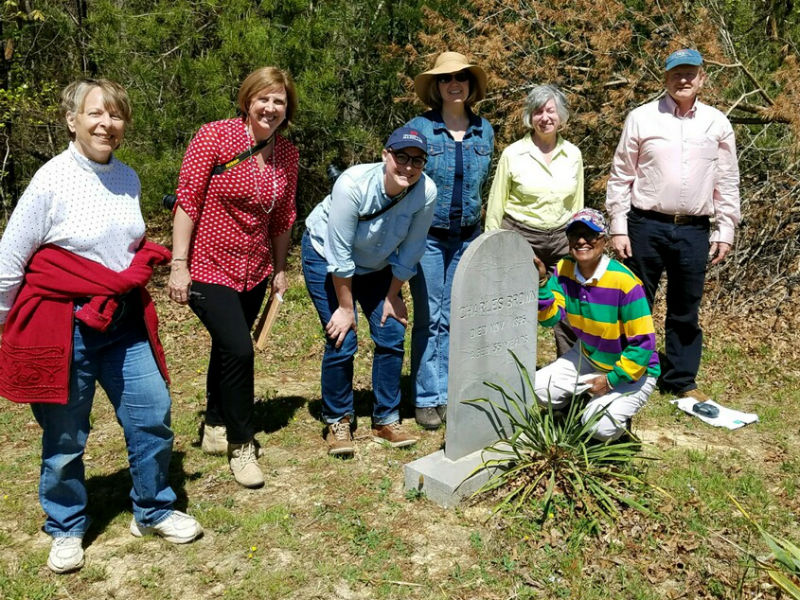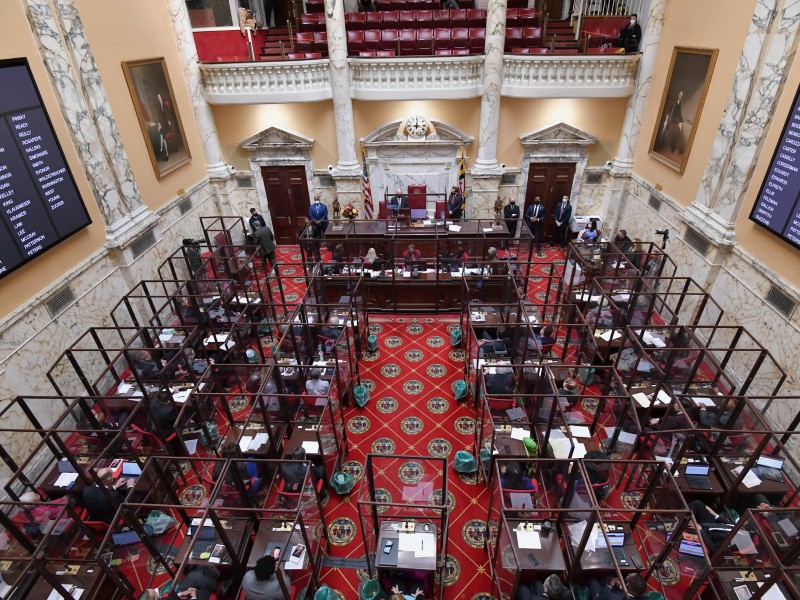We are halfway through an extremely busy – and all virtual – 90 day legislative session, and Preservation Maryland is staying engaged in Annapolis, with the organization championing several key bills and testifying on many other important pieces of legislation.
Since the start of the 2021 session of the Maryland General Assembly, Preservation Maryland has provided written or oral testimony on the following pieces of legislation:
Small Commercial Historic Tax Credit Funding [SB659/HB862]
Would increase authorized funding to the Small Commercial Tax Credit program by $1 million. The program is currently out of money and unable to issue tax credits.
“This tax credit is not a hand out – it is an investment in Maryland’s communities and economy. SB659 would extend the life of a critical program and increase its positive impact across the state.” — Elly Cowan, Director of Advocacy, Preservation Maryland
Clean Energy Loan Program Expansion [SB319/HB517]
Expands Maryland’s current clean energy loan program (MD C-PACE) to include resiliency, environmental remediation, and water efficiency projects.
Allowing Resident Curators to Utilize the Residential Historic Tax Credit [SB447/HB539]
This bill would allow participants of the Department of Natural Resources’ Resident Curatorship program to access the residential historic tax credit.
African American History Curriculum in Public Schools [HB11]
Would require the State Board of Education to develop content standards for African American History to be included in State social studies and requiring each public school in the State to implement an African American history curriculum by the 2022-2023 school year.
Prohibition on Invasive and Nonnative Plant Species [HB92]
Would prohibit, with exceptions like at historic sites, the use of State funds to purchase or plant certain invasive or nonnative plant species.

Photo of Glenn Dale Hospital historic complex in Prince George’s County, MD.
Catalytic Revitalization Project Tax Credit [SB885]
Would create a new tax credit within the Department of Housing and Community Development to support the revitalization of catalytic projects and instructs the steering committee of the workgroup that studied the reuse of historic government complexes in 2019, on which Preservation Maryland served, to make recommendations to the Department of Housing and Community Development and the Department of Commerce.

Mt. Hope Baptist Cemetery in Charles County, MD, 2017.
Historic African American Cemeteries Preservation Fund and Study [HB1099]
Would create an Historic African American Cemetery Preservation Fund and instructs the Department of Planning to conduct a study of the current state of historic African American Cemetery preservation and make recommendations that would inform the regulations of the Preservation Fund.
Urban Trees Program [HB1133]
Establishes both an Urban Tree Program for the purpose of planting and maintaining native trees in underserved areas of the state and the Commission for the Innovation and Advancement of Carbon Markets and Sustainable Tree Plantings to develop a plan to establish a Maryland-based carbon offset market to support more tree plantings in the future.
Planning & Design funding for Southern Maryland Rapid Transit [SB81/HB414]
Southern Maryland and Charles County, in particular, has some of the worst traffic in the nation. This legislation would finally fund the planning and design of the long-anticipated southern Maryland Rapid Transit system. Smart Growth Maryland’s work in Charles County has long advocated for this critical transportation system.
Climate Solutions Now Act of 2021 [SB414/HB583]
A climate omnibus bill that, among many things, requires the State to reduce statewide greenhouse gas emissions by 60% from 2006 levels by 2030, establishes energy conservation requirements for certain buildings by 2022, tasks the Commission on Environmental Justice and Sustainable Communities to determine what percentage of state funds invested in climate change must go to overburdened communities, creates a work group to make recommendations for workforce development and training for displaced fossil fuel workers, and plans for the planting of 5 million trees by 2030, with 10% to be planted in underserved urban areas of the state.
Maryland Sustainable Buildings Act of 2021 [HB236]
Requires the Maryland Department of General Services to establish standards for state buildings and those buildings with 51% or more state funding to reduce the amount of energy-inefficient and bird-dangerous glass. Glass greater than 10% of the first 40 feet of building facades and 40% above 40 feet would need to be shaded, screened, or patterned with visible or UV films, frits, or etching. Such standards would reduce energy costs and reduce bird fatalities by more than 90%. Lighting during non-operational night times would also be limited to save energy and reduce bird attraction.
In addition to testifying on specific legislation, the organization has also been active in the budget process on several key issues:
- Supporting full funding of Program Open Space and opposition to any cuts or deferments to the repayment schedule.
- Supporting full funding of the Maryland Heritage Area Authority & Maryland Historical Trust’s grant programs.
Advocacy Requires Your Support
Staying engaged over the entire 90-day session requires dedication, partnerships and significant financial resources. Preservation Maryland is dependent on donor contributions to keep us on the ground in Annapolis making the case for preservation. Please consider making a gift to our advocacy fund to help support our essential work.

